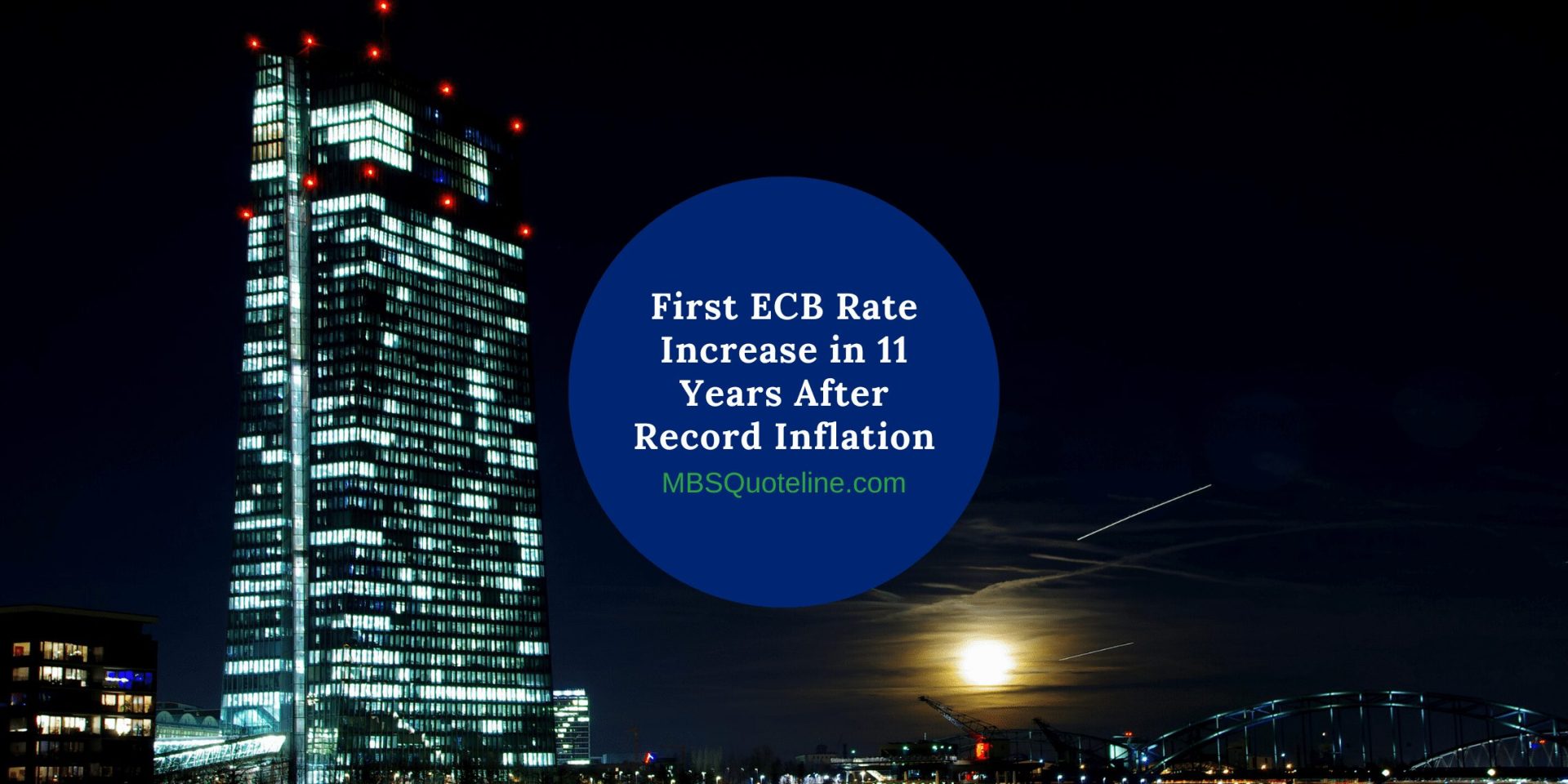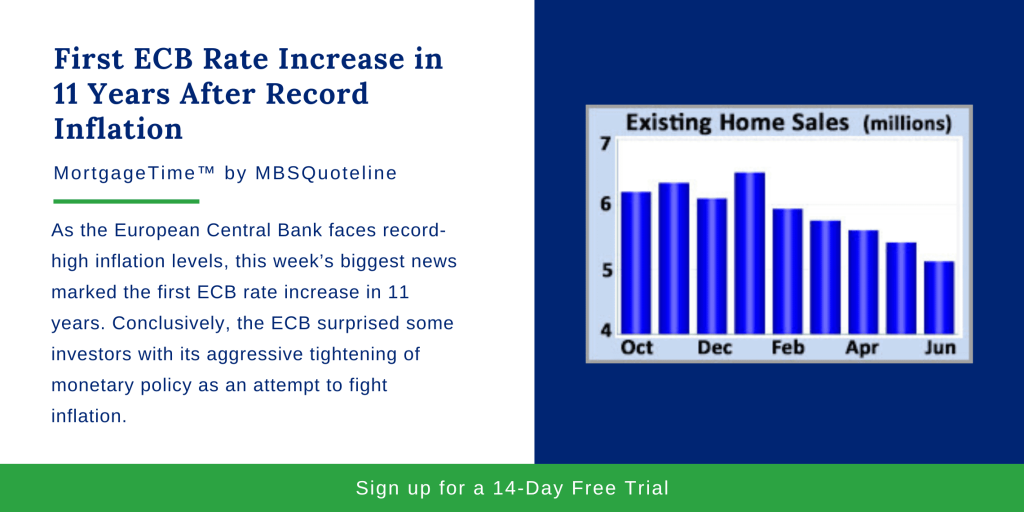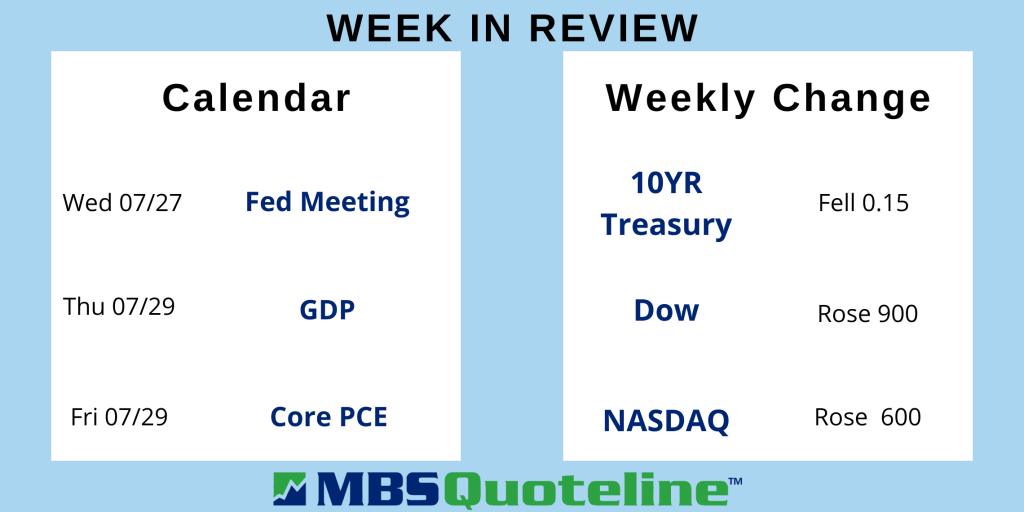As the European Central Bank faces record-high inflation levels, this week’s biggest news marked the first ECB rate increase in 11 years. Conclusively, the ECB surprised some investors with its aggressive tightening of monetary policy as an attempt to fight inflation.
Thus, mortgage markets received a favorable impact. As a result, mortgage rates ended the week lower.
First ECB Rate Increase in 11 Years
On Thursday, the first ECB rate increase in over a decade saw a 50-basis point jump. Initially, investors expected a smaller rate hike of only 25 basis points. However, the Eurozone stands at record-high inflation levels. Since this move slows economic growth, it reduces future inflationary pressures. Overall, this benefits mortgage rates.
Meanwhile, the United States’ higher mortgage rates took a large toll on mortgage application volumes. Currently, mortgage application volumes plummeted to the lowest level since 2000. According to the latest data from the Mortgage Bankers Association (MBA), average 30-year fixed rates climbed over 2.5% higher than a year ago. Purchase applications decreased 19% from last year at this time. Finally, refinance applications plunged a shocking 80% from one year ago.
Existing Home Sales Fall as Housing Inventory Stagnates
Aside from the first ECB rate increase in 11 years, existing home sales fell for the fifth straight month in June to the lowest level since June 2020. In addition, existing home sales dropped 14% lower than last year at this time. On a more positive note, inventory levels rose 2% higher than a year ago, the first annual increase in three years. Despite the optimism, housing inventory sits at just a low 3.0-month supply nationally. Lastly, the ever-climbing median existing-home price soared 13% higher than a year ago at a record $416,000.
While more inventory is badly needed in many regions, the latest data proved quite discouraging. In June, housing starts of single-family units declined 8% from May to the lowest level in two years. In a NAHB survey covering home builder sentiment, the outlook deteriorated far more than expected to the lowest reading since May 2020. Once more, higher prices and shortages for land, materials, and skilled labor presented major issues to a faster construction pace.
Looking Ahead After First ECB Rate Increase Surprises Investors
After this week’s first ECB rate increase surprised investors, they anxiously await this Wednesday’s Federal Reserve meeting. Now, investors anticipate a 75-basis point rate hike. Also, they look for additional guidance on the pace of future rate hikes and bond portfolio reduction.
Beyond that, New Home Sales and Consumer Confidence release on Tuesday. Second quarter GDP, the broadest measure of economic activity, comes out on Thursday. The core PCE price index, the inflation indicator favored by the Fed, publishes on Friday.
As the ECB launched its first rate increase in 11 years, mortgage rates ended the week slightly lower. Never miss an update with MBSQuoteline. To receive by-the-minute updates on mortgage-backed securities, try our platform free for 14 days.
Stay connected with MBSQuoteline on social media by following us on Facebook, Twitter, and LinkedIn.
All material Copyright © Ress No. 1, LTD (DBA MBSQuoteline) and may not be reproduced without permission. To learn more about the MortgageTime™ newsletter, please contact MBSQuoteline at 800.627.1077 or info@mbsquoteline.com.



